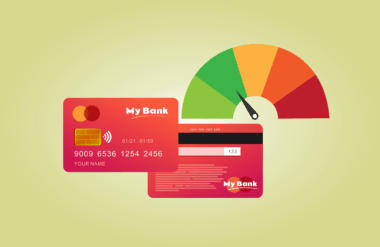How to Monitor Your Progress on a Debt Management Plan
Monitoring your progress on a Debt Management Plan (DMP) is essential for achieving financial stability and peace of mind. The DMP is a structured way to repay your debts either through consolidation or negotiation with your creditors. First, you must keep accurate records of all payments made towards your DMP. This includes both the total amount of debt and the individual contributions made to each debt. Ensure you receive regular statements from your creditors. Review these to confirm that payments are applied correctly against your accounts. It is also beneficial to track your spending habits concurrently while in the DMP. This helps identify areas where overspending occurs and allows for better budget adjustments. Open communication with your DMP provider is crucial in this monitoring process; they can provide insights into your progress and help address any concerns that may arise. Regularly consulting your goals can urge you on the right track towards financial freedom. Make use of budgeting tools to maintain financial order and track expenses effectively, ensuring you stay on schedule with repayments.
Furthermore, it is important to set realistic timeframes for your progress. Debt repayment can be a long process, and expecting immediate results may lead to discouragement. Establishing milestones along the way can help you stay motivated. For example, mark specific points on your calendar, such as reducing your debt by a certain percentage every few months. Celebrating these small victories promotes a sense of achievement and progress. You may also find it effective to share your goals with trusted friends or family members, who can provide encouragement and help hold you accountable. Another key aspect is to adjust your budget regularly as needed. If your financial situation shifts, you may need to re-evaluate your budget to ensure that you maintain the necessary payments towards your debts. Moreover, consider reaching out to financial counseling services if you feel overwhelmed. They can provide trusted guidance and resources tailored to your unique situation. Staying proactive and responsive to changes in your financial landscape will bolster your progress. This adaptability ensures you remain aligned with your ultimate goal of becoming debt-free over time.
Utilizing Financial Tools for Tracking
Utilizing financial management tools can play a significant role in monitoring your debt management progress. There are numerous applications and software designed explicitly to help individuals keep track of their budgets, payments, and debts. These tools often allow users to categorize expenses and set up alerts for upcoming payments, ensuring that nothing falls through the cracks. Some popular options include Mint, YNAB (You Need A Budget), and Personal Capital. By integrating your DMP payments into these applications, you’ll gain a clearer overview of your overall financial health, making adjustments more manageable. Review your progress frequently within these platforms; they often provide insights into spending patterns that need addressing. It can be invaluable to analyze recurring expenditures and identify non-essential areas where you can cut costs. This allows for additional payments toward your debt, accelerating your journey to financial freedom. Additionally, many of these tools can generate visual representations of your progress, such as graphs or charts, which can be motivating. Regularly engage with these tools to stay focused on your debt repayment journey.
Don’t overlook the importance of maintaining an open dialogue with your creditors as part of your DMP progress monitoring. Whenever you experience changes in income or expenses, proactively contact your creditors to keep them informed. They may provide options such as temporary payment reductions or deferments to ease burdens during challenging times. Knowing your creditor’s policies on payment modification can be beneficial. Always remain transparent about your financial situation. This honesty can build trust with lenders and potentially lead to more flexible payment solutions. In addition to communication, review the effectiveness of your DMP regularly. Assess if the plan continues to work in your favor as you progress. If you find that the plan’s structure no longer suits your needs or if you can afford to pay more, consider negotiating for better terms. Always be prepared with documentation that reflects your financial status. This includes proof of income, expenses, and outstanding debts. Regular reviews of your DMP help ensure that you stay on the path to financial health and avoid unforeseen setbacks.
Embracing Support Systems
Embracing support systems can be a vital aspect of successfully monitoring your DMP progress. This journey can often feel overwhelming, and having a network of support can help you stay committed and motivated. Consider joining support groups, either online or in person, where members share their experiences, tips, and encouragement regarding debt management. Acknowledging that you are not alone in your struggle can be empowering. Additionally, you may wish to involve a trusted friend or family member in your journey. By doing so, you create a sense of accountability, especially when sharing updates about your progress. Regular check-ins can be motivating and help reinforce your dedication to the plan. You may find it helpful to participate in financial education workshops or seminars. These can provide valuable tools and resources that enhance your understanding of debt management and personal finance. Through these platforms, interact with others facing similar challenges and share strategies for success. Ultimately, building a well-rounded support network arms you with the tools necessary to stay focused on your debt repayment goals.
Tracking emotional progress can sometimes be just as important as tracking financial progress on your DMP. Debt can take a significant toll on mental health, and recognizing your emotional state throughout the repayment process is key. It’s essential to monitor feelings related to financial stress, anxiety, and achievement. Keeping a journal can help you document these emotions. Write down your thoughts, fears, and successes to identify patterns over time. This practice can promote self-reflection and ultimately help you handle stress more effectively. Celebrate your achievements, no matter how small they may seem. Recognizing progress helps maintain motivation and reinforces positive feelings associated with managing debt proactively. Engage in self-care activities that relieve stress, such as exercise or hobbies, ensuring you find balance amid the challenges of debt repayment. Connecting with a therapist or counselor can also provide additional emotional support. These professionals can help you develop strategies to cope with the anxiety surrounding your debts. As you progress in your financial journey, understanding and addressing your emotional well-being will contribute to a more holistic approach to debt management.
Conclusion and Final Thoughts
In conclusion, effectively monitoring your progress on a Debt Management Plan is achievable with dedication and effective strategies. From maintaining organized records and utilizing financial tools to embracing support systems and fostering emotional well-being, each element plays a vital role in your success. Regularly assess your budget and communicate with creditors to ensure you’re staying on track. Moreover, set realistic milestones, celebrate your achievements, and maintain an adaptable approach to your DMP. Empower yourself by embracing financial education, sharing your journey with others, and seeking professional guidance when necessary. Ultimately, the path to financial health is a journey, and taking consistent, proactive steps will lead you closer to your goals. Every small effort you invest in monitoring and managing your debt brings you one step closer to the financial freedom you desire. In the long run, staying engaged and focused will not only help you clear your debts but also foster healthier financial habits for life. Commit to being diligent in your efforts, and you will find that success in managing your debts is a rewarding experience.
In addition to what has been previously discussed, engaging with online communities dedicated to debt management can also provide invaluable support. These communities, found on platforms such as social media groups and forums, allow individuals to share experiences, tips, and advice. This shared wisdom can enhance your understanding of your own situation and introduce you to innovative strategies that others have found effective. Moreover, these communities often celebrate collective successes, which can help bolster collective motivation. Be open to utilizing these resources; they can provide encouragement when motivation wanes. Furthermore, consider turning your experience into a story. By documenting your journey, you not only hold yourself accountable but may inspire others facing similar challenges. Blogging about your journey or sharing updates on social media can create a sense of community and accountability, while also capturing your growth over time. Remember, you are not alone in this journey—you can benefit from the collective wisdom of others who have walked this path. Regular engagement with these communities can serve as an ongoing source of support and encouragement, fostering an atmosphere of positivity as you continue your journey toward financial freedom.





